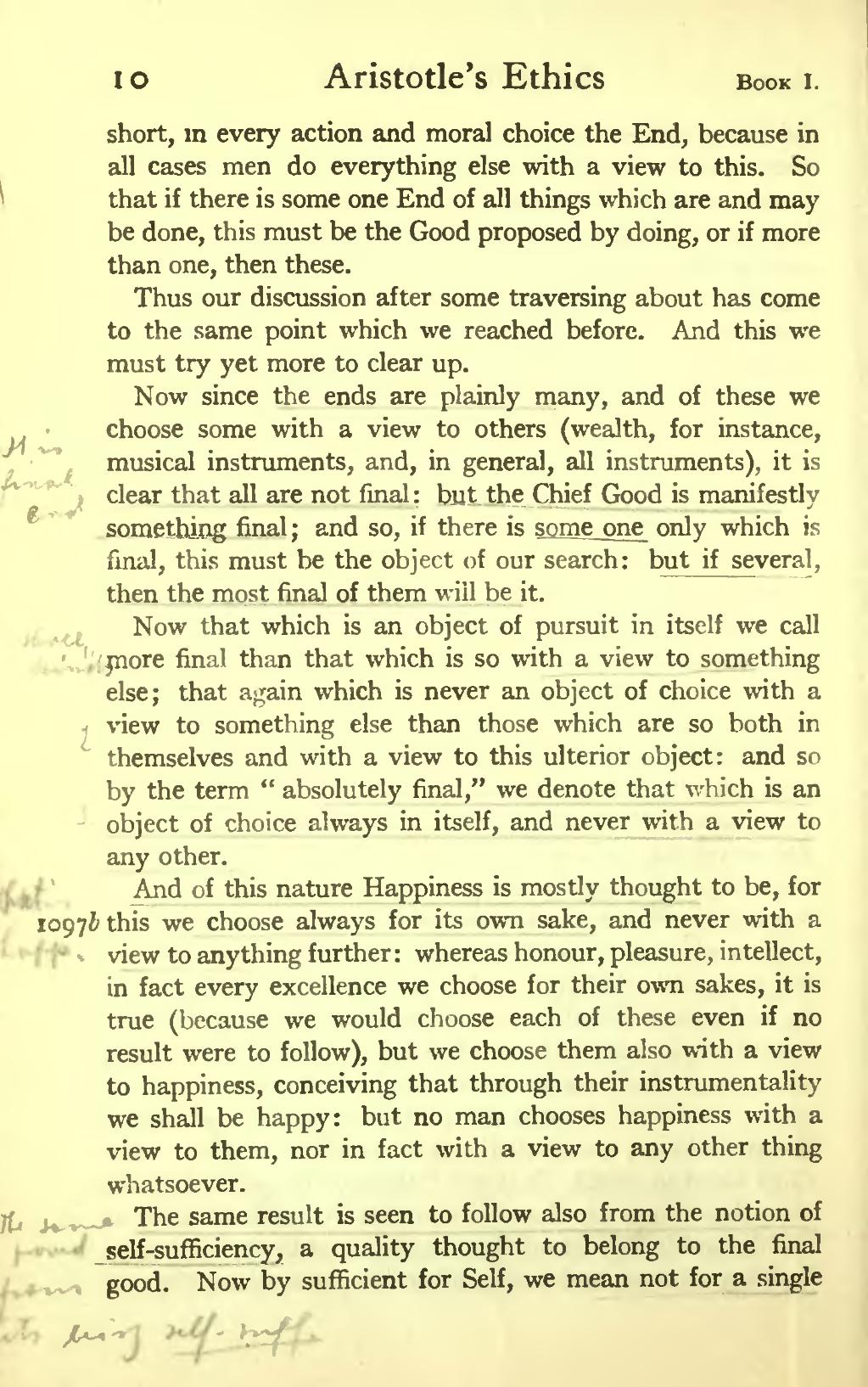short, in every action and moral choice the End, because in all cases men do everything else with a view to this. So that if there is some one End of all things which are and may be done, this must be the Good proposed by doing, or if more than one, then these.
Thus our discussion after some traversing about has come to the same point which we reached before. And this we must try yet more to clear up.
Now since the ends are plainly many, and of these we choose some with a view to others (wealth, for instance, musical instruments, and, in general, all instruments), it is clear that all are not final: but the Chief Good is manifestly something final; and so, if there is some one only which is final, this must be the object of our search: but if several, then the most final of them will be it.
Now that which is an object of pursuit in itself we call more final than that which is so with a view to something else; that again which is never an object of choice with a view to something else than those which are so both in themselves and with a view to this ulterior object: and so by the term “absolutely final,” we denote that which is an object of choice always in itself, and never with a view to any other.
And of this nature Happiness is mostly thought to be,1097b for this we choose always for its own sake, and never with a view to anything further: whereas honour, pleasure, intellect, in fact every excellence we choose for their own sakes, it is true (because we would choose each of these even if no result were to follow), but we choose them also with a view to happiness, conceiving that through their instrumentality we shall be happy: but no man chooses happiness with a view to them, nor in fact with a view to any other thing whatsoever.
The same result[1] is seen to follow also from the notion of self-sufficiency, a quality thought to belong to the final good. Now by sufficient for Self, we mean not for a single
- ↑ P. 10, l. 34. i.e. the identification of Happiness with the Chief Good.
